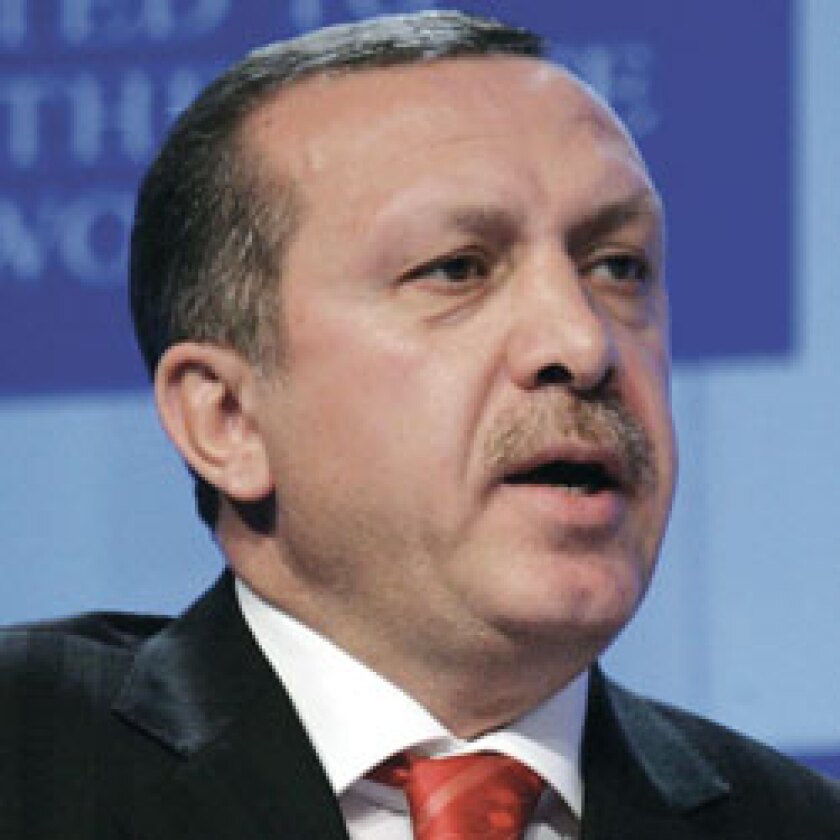The resignation of Turkey’s prime minister Ahmet Davutoglu, a result of his differences with Recep Tayyip Erdogan, is likely to embolden the president in his drive to expand his political role, analysts said on Wednesday.
Equities and the lira have sold off in response to the political upheaval and the election of a new leader of the ruling AKP party is not expected until May 22.
Strong growth has seen Turkey become a staple of many emerging market portfolios. The country has endured its fair share of political turbulence over the years but its strong macro fundamentals have always propped up investments.
Now investor nerves are beginning to fray. “You cannot ignore the fact that its politics are getting trickier,” said Greg Saichin, chief investment officer at Allianz Global Investors.
“Currently we are anchoring our economic expectations on [deputy prime minister Mehmet Simsek. We know his thoughts and how his policies really work which is important for investor confidence.”
Kevin Daly, a portfolio manager focussing on local currency emerging market debt at Aberdeen Asset Management, agreed that the hopes of the investment community were pinned on Simsek remaining in office.
“One of the key issues will be what happens to Simsek,” he said. “He’s viewed to be an ally of the investment community. If he were removed, it would be a real negative for the market. It’s not going to trigger an outflow of funds but where does the policy environment head from here?”
The EBRD remains more positive on Turkey however, believing the economy can withstand any political uncertainty although it would not comment directly.
“These types of issues do not deter us,” said Bojan Markovic, a deputy director in economics, policy and governance at the EBRD. “Of course any perceived political uncertainty effects investment decision but we remain committed to investing in Turkey.”
The EBRD projects Turkish growth to moderate to 3.2% in 2016. At 4% growth was unexpectedly strong in 2015 due to several factors: low oil prices; higher capital spending; an influx of refugees; a weaker lira; and supportive fiscal conditions.
While Markovic expects continued global demand, a sharp decline in tourism following terror attacks and Russian sanctions would hinder the economy in 2016, he said.
The EBRD had been encouraged by the reform agenda and would continue its commitment to Turkey, its largest lending partner, he said, adding that he expected growth to pick up again to 3.4% in 2017.
WATCHING CLOSELY
Investors acknowledged that Turkey’s political uncertainties were nothing new and that the economic outlook had not fundamentally changed, but did raise concerns about any delay to reform implementation.
“We are all scrutinising what is going to happen next,” said Saichin. “If Simsek were to go, that would be negative, if central bank policy moves to be less orthodox, that would rattle investors and if the constitutional change is implemented, that would be negative. Turkey is a highly important weight in the benchmark so we cannot ignore it but now there’s scope for the surprise factor.”
